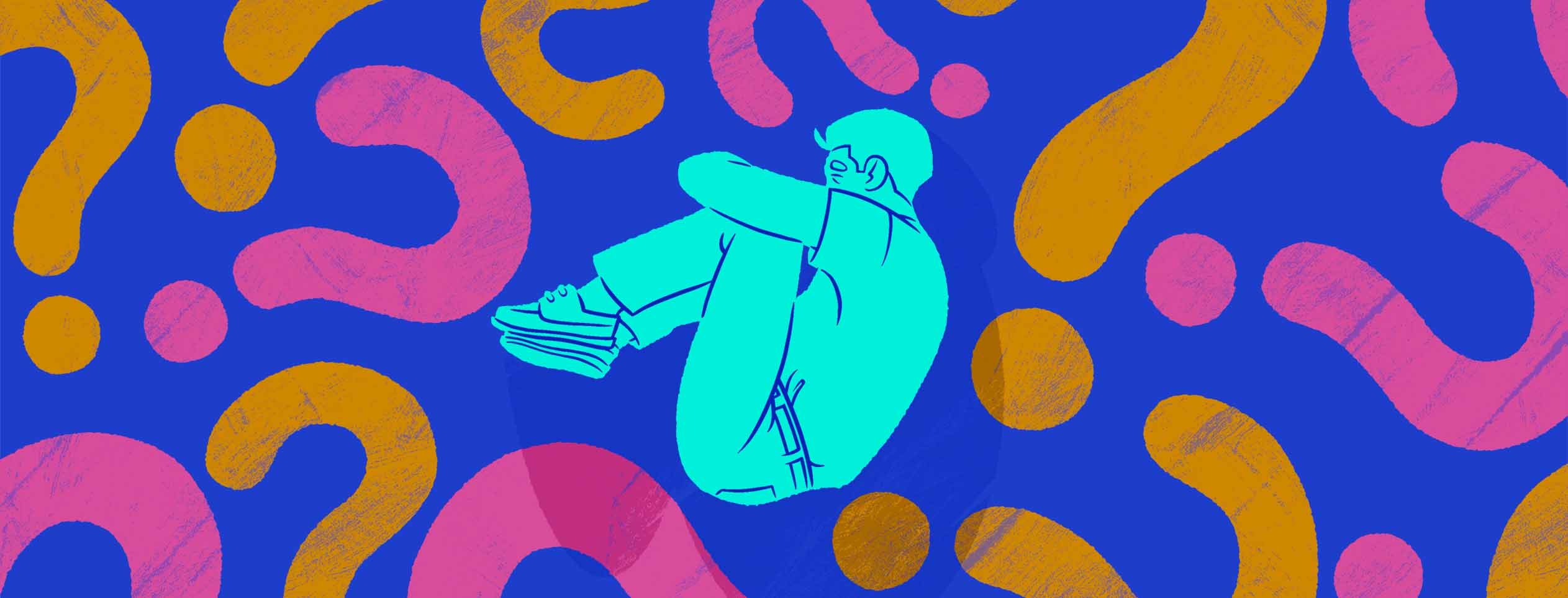The Perspective of a Crohn's "Veteran"
June 1988. I don't remember the exact date but I do remember that I had already been suffering from severe, curled-up-in-a-ball type pain, diarrhea, drastic weight loss, and dozens of tests for almost 6 months before this day.
I think it was my 6th doctor that I had seen who finally gave me the news about what the hell was wrong with me: Crohn’s disease and there was no cure.
What's Crohn's disease...?
Never heard of it, nor did anyone I know at the time. My doctor gave me some literature but back then it's not like you could whip out your phone, open your laptop or turn on your computer to surf the web to find out more information. They didn't exist. The world wide web wouldn't be available for another 5 years, so what was a 20-year-old to do who needed answers to a disease no one seemed to know anything about?
The public library is where I started my research into my IBD. Unfortunately, there weren't too many books about it either but I think I must have looked at them all. I remember that they didn't help much on how to deal with it only what it was.
Limited Crohn's treatment options
There were not too many options for treatment back then, there were 2. Just 2. Medications and/or resection surgery. I've done both. I tried a number of different medications over the decades but the combination that worked for me in the early years was mesalazine and prednisone. I was on these for the better part of 20+ years.
Surgical resections
Surgical resections were also part of my treatment but usually as a last resort. I say resections ,plural, because each time I had surgery, where my intestines were put back together is where the inflammation would start again. Even though the 2 ends were healthy at the time.
A total of 6 resections over a 15-year span took 90% of my large and about 30% of my small, leaving me with short bowel syndrome. No one can see what I was dealing with except for the fact I always canceled going out with friends.
Extreme weight loss and depression
I was so, so skinny and basically became an introvert. Even though I was losing weight fast and my once-athletic body was now anorexic looking, friends and colleagues didn't understand or want to understand. My girlfriend at the time dumped me because she couldn't handle my illness. She couldn't. I could hear the whispering and see the side glances. Depression and anxiety soon followed.
I now advocate for the newly diagnosed to ask their doctor about mental health help. It's just as important and I wish I had that instead of holding everything inside.
A Crohn's diagnosis looks different today
Today when I talk with IBD newbies or even those who have had IBD for many years, I tell them that I envy them. Some think it strange but after they hear my story, I think they understand. I like to consider my experiences with IBD as the trial run for people diagnosed in the 21st century.
There have been so many advancements with medications, surgeries, and a better understanding of the disease, not only by the general public but the doctors themselves.
Advancements in biologics for Crohn's
The introduction of biologics was a huge advancement for the treatment of IBD and wish I had the option back then even though when the option came up for me to try it, I did not jump at it because of all the things I heard could go wrong. I tell people now, if they have the option for biologics, take it.
I was put on a biologic back in 2012 and I always tell people it was a "Godsend" for me in terms of my Crohn's symptoms. It didn't take them all away, but most of them. That biologic lasted for 8 years before my body developed antibodies and I was switched to another biologic, and then its biosimilar, which I still take.
We can connect online
Another huge development that I have seen is the introduction of the internet and social media, in particular. Facebook, Instagram, Twitter, Tik Tok, and blogs are just a few that have brought IBD out from its shadow so everyone from around the world can connect and no longer feel alone with their chronic illness.
I had no one to talk to who knew what I was going through. Every time I mentioned what I had and why I was sick, I always got the same answer, "What's that?" I would then have to explain it all, only for them to have that look on their face pretending they understood what I was saying. With social media, the "invisible illness" is no more.
People actually know what IBD is now
Almost everyone I talk to now about IBD either understands what I'm saying, knows someone who has it, or has a direct family member who has it. Even more of a chance they know someone less directly, like at work. There are so many fantastic IBD advocates and organizations now. I started blogging about it, trying to put some humor to a not-so-funny disease and I've talked to people from around the world. Not just about my experiences or to compare battle scars, but just to talk to someone who understands.
I hope one day this disease will be in the history books as a cured disease and people can read about how it used to be. Maybe there will be an IBD obituary. It's too late for me, now that I have a permanent ostomy and no butthole, but for future generations like my kids, the advancements I've seen in the 34 years that I've had Crohn's have been huge, and I can't wait to see what's coming next.

Join the conversation